- Home
- L. Ron Hubbard
Disaster Page 33
Disaster Read online
Page 33
In addition to his career as a leading writer of fiction, he worked as a successful screenwriter in Hollywood where he wrote the original story and script for Columbia’s 1937 hit serial, “The Secret of Treasure Island.” His work on numerous films for Columbia, Universal and other major studios involved writing, providing story lines and serving as a script consultant.
In 1938, he was approached by the venerable New York publishing house of Street and Smith, the publishers of Astounding Science Fiction. Wanting to capitalize on the proven reader appeal of the
L. Ron Hubbard byline to capture more readers for this emerging genre, they essentially offered to buy all the science fiction he wrote. When he protested that he did not write about machines and machinery but that he wrote about people, they told him that was exactly what was wanted. The rest is history.
The impact and influence that his novels and stories had on the fields of science fiction, fantasy and horror virtually amounted to the changing of a genre. It is the compelling human element that he originally brought to this new genre that remains today the basis of its growing international popularity.
L. Ron Hubbard consistently enabled readers to peer into the minds and emotions of characters in a way that sharply heightened the reading experience without slowing the pace of the story, a level of writing rarely achieved.
Among the most celebrated examples of this are three stories he published in a single, phenomenally creative year (1940)—Final Blackout and its grimly possible future world of unremitting war and ultimate courage which Robert Heinlein called “as perfect a piece of science fiction as has ever been written”; the ingenious fantasy-adventure, Typewriter in the Sky described by Clive Cussler as “written in the great style adventure should be written in”; and the prototype novel of clutching psychological suspense and horror in the midst of ordinary, everyday life, Fear, studied by writers from Stephen King to Ray Bradbury.
It was Mr. Hubbard’s trendsetting work in the speculative fiction field from 1938 to 1950, particularly, that not only helped to expand the scope and imaginative boundaries of science fiction and fantasy but indelibly established him as one of the founders of what continues to be regarded as the genre’s Golden Age.
Widely honored—recipient of Italy’s Tetradramma D’Oro Award and a special Gutenberg Award, among other significant literary honors—Battlefield Earth has sold more than 6,000,000 copies in 23 languages and is the biggest single-volume science fiction novel in the history of the genre at 1050 pages. It was ranked number three out of the 100 best English language novels of the twentieth century in the Random House Modern Library Reader’s Poll.
The Mission Earth dekalogy has been equally acclaimed, winning the Cosmos 2000 Award from French readers and the coveted Nova-Science Fiction Award from Italy’s National Committee for Science Fiction and Fantasy. The dekalogy has sold more than seven million copies in 6 languages, and each of its 10 volumes became New York Times and international bestsellers as they were released.
The first of L. Ron Hubbard’s original screenplays Ai! Pedrito! When Intelligence Goes Wrong, novelized by author Kevin J. Anderson, was released in 1998 and immediately appeared as a New York Times bestseller. This was followed in 1999 with the publication of A Very Strange Trip, an original L. Ron Hubbard story of time-traveling adventure, novelized by Dave Wolverton, that also became a New York Times bestseller directly following its release.
His literary output ultimately encompassed more than 250 published novels, novelettes, short stories and screenplays in every major genre.
For more information on L. Ron Hubbard and his many acclaimed works of fiction visit www.galaxypress.com.

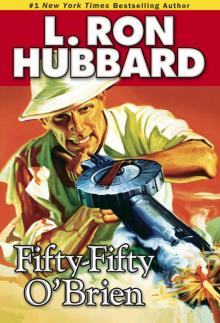 Fifty-Fifty O'Brien
Fifty-Fifty O'Brien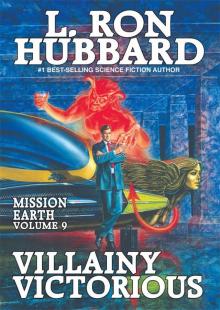 Villainy Victorious
Villainy Victorious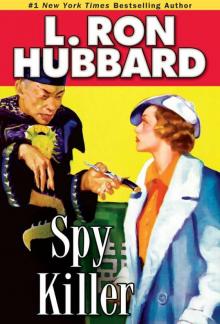 Spy Killer
Spy Killer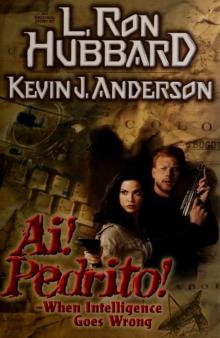 Ai! Pedrito!: When Intelligence Goes Wrong
Ai! Pedrito!: When Intelligence Goes Wrong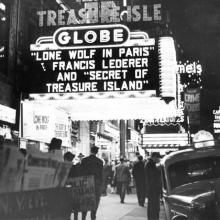 The Dangerous Dimension
The Dangerous Dimension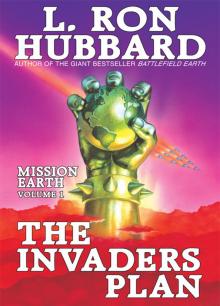 Mission Earth Volume 1: The Invaders Plan
Mission Earth Volume 1: The Invaders Plan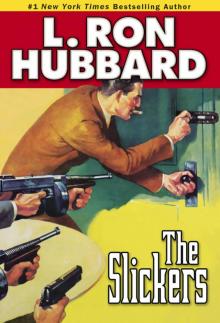 The Slickers
The Slickers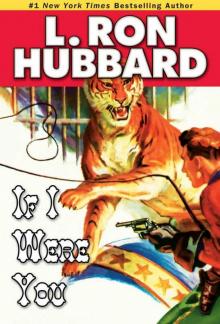 If I Were You
If I Were You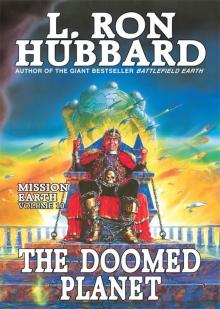 The Doomed Planet
The Doomed Planet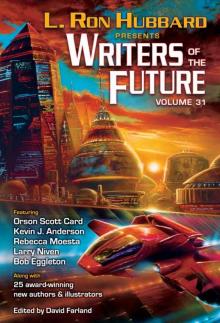 Writers of the Future Volume 31
Writers of the Future Volume 31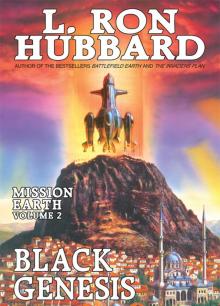 Mission Earth Volume 2: Black Genesis
Mission Earth Volume 2: Black Genesis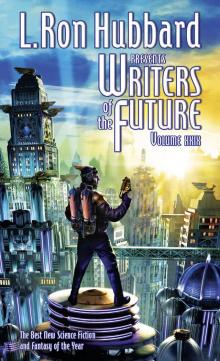 Writers of the Future: 29
Writers of the Future: 29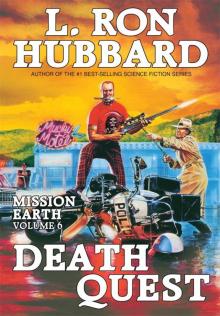 Death Quest
Death Quest The Enemy Within
The Enemy Within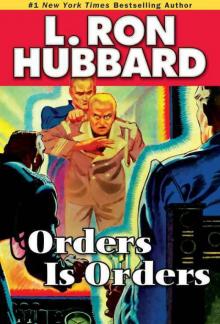 Orders Is Orders
Orders Is Orders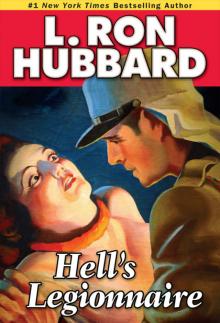 Hell's Legionnaire
Hell's Legionnaire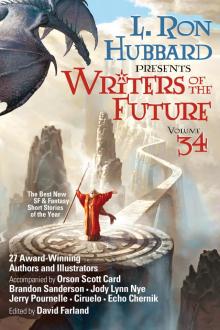 L. Ron Hubbard Presents Writers of the Future 34
L. Ron Hubbard Presents Writers of the Future 34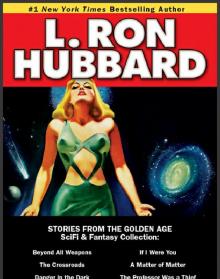 The Scifi & Fantasy Collection
The Scifi & Fantasy Collection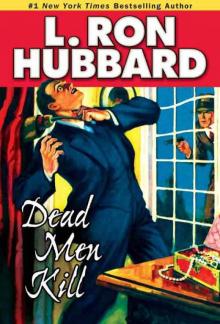 Dead Men Kill
Dead Men Kill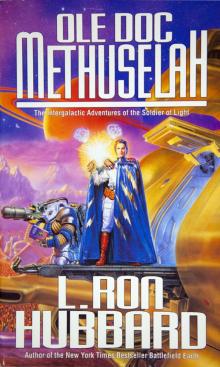 Ole Doc Methuselah: The Intergalactic Adventures of the Soldier of Light
Ole Doc Methuselah: The Intergalactic Adventures of the Soldier of Light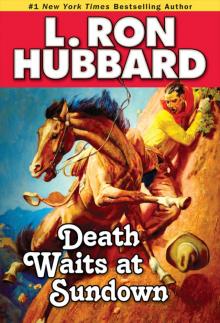 Shadows From Boot Hill
Shadows From Boot Hill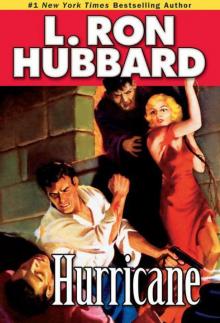 Hurricane
Hurricane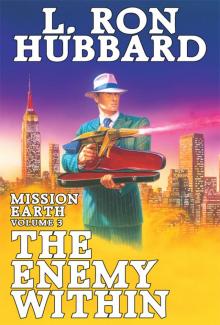 Mission Earth Volume 3: The Enemy Within
Mission Earth Volume 3: The Enemy Within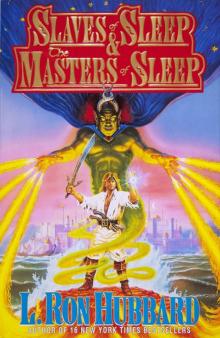 Slaves of Sleep & the Masters of Sleep
Slaves of Sleep & the Masters of Sleep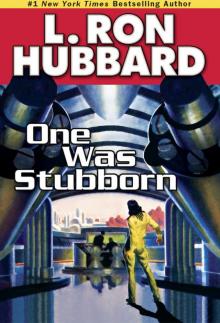 One Was Stubborn
One Was Stubborn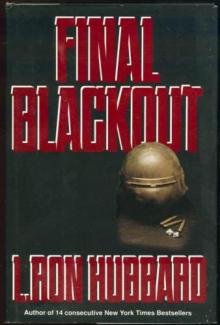 Final Blackout: A Futuristic War Novel
Final Blackout: A Futuristic War Novel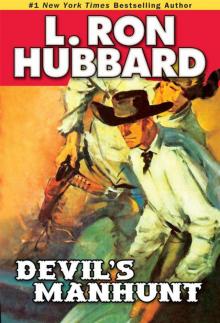 Devil's Manhunt
Devil's Manhunt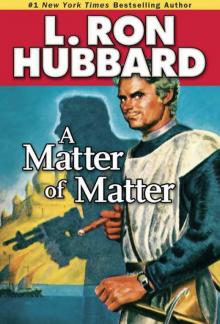 A Matter of Matter
A Matter of Matter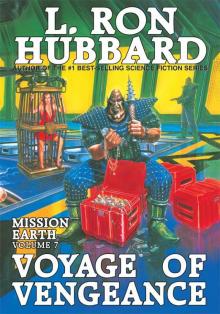 Voyage of Vengeance
Voyage of Vengeance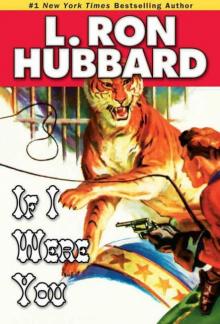 If I Were You (Science Fiction & Fantasy Short Stories Collection)
If I Were You (Science Fiction & Fantasy Short Stories Collection)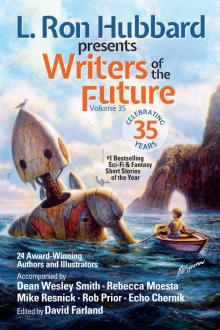 L. Ron Hubbard Presents Writers of the Future Volume 35
L. Ron Hubbard Presents Writers of the Future Volume 35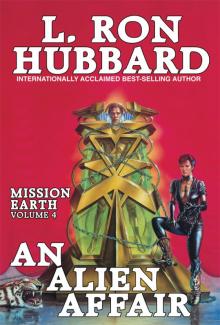 Mission Earth Volume 4: An Alien Affair
Mission Earth Volume 4: An Alien Affair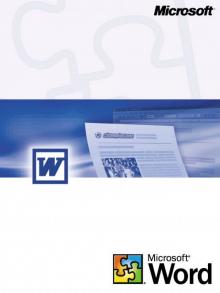 Black Genesis
Black Genesis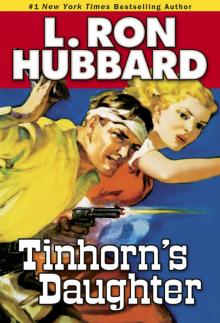 Tinhorn's Daughter
Tinhorn's Daughter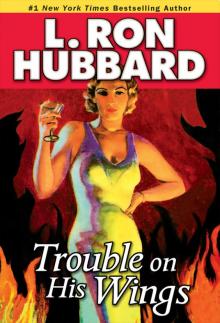 Trouble on His Wings
Trouble on His Wings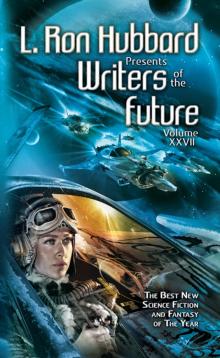 Writers of the Future Volume 27: The Best New Science Fiction and Fantasy of the Year
Writers of the Future Volume 27: The Best New Science Fiction and Fantasy of the Year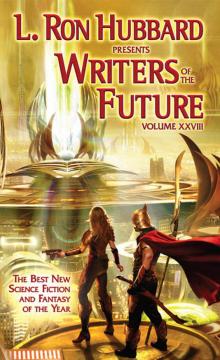 Writers of the Future Volume 28: The Best New Science Fiction and Fantasy of the Year
Writers of the Future Volume 28: The Best New Science Fiction and Fantasy of the Year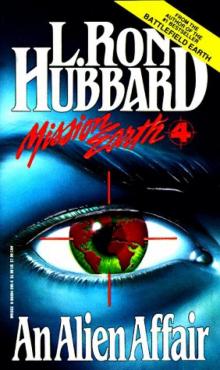 An Alien Affair
An Alien Affair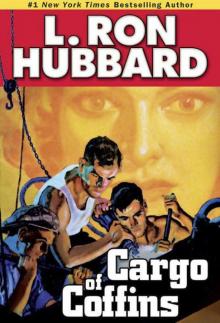 Cargo of Coffins
Cargo of Coffins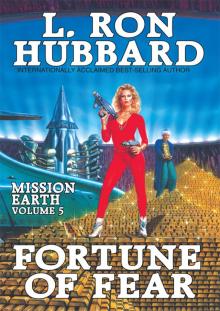 Mission Earth Volume 5: Fortune of Fear
Mission Earth Volume 5: Fortune of Fear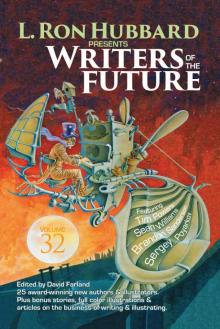 Writers of the Future 32 Science Fiction & Fantasy Anthology
Writers of the Future 32 Science Fiction & Fantasy Anthology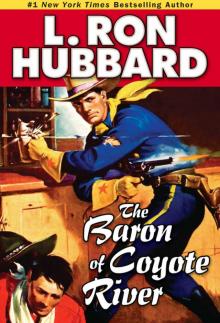 The Baron of Coyote River
The Baron of Coyote River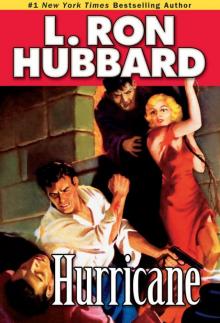 Hurricane (Stories From the Golden Age)
Hurricane (Stories From the Golden Age)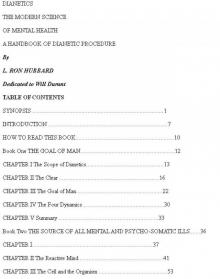 Dianetics: The Modern Science of Mental Health
Dianetics: The Modern Science of Mental Health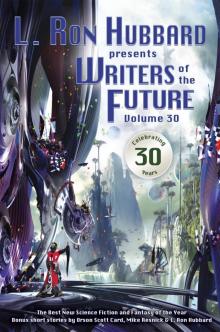 Writers of the Future, Volume 30
Writers of the Future, Volume 30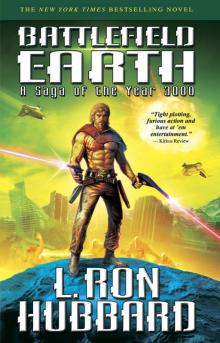 Battlefield Earth: A Saga of the Year 3000
Battlefield Earth: A Saga of the Year 3000 Fear
Fear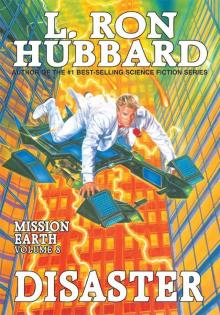 Disaster
Disaster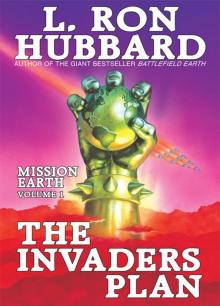 Invaders Plan, The: Mission Earth Volume 1
Invaders Plan, The: Mission Earth Volume 1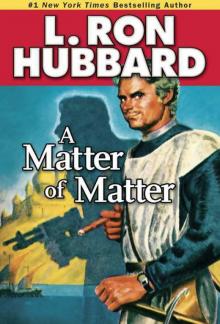 A Matter of Matter (Stories from the Golden Age)
A Matter of Matter (Stories from the Golden Age)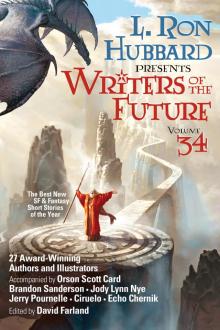 Writers of the Future Volume 34
Writers of the Future Volume 34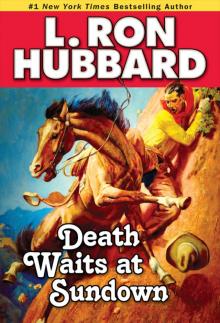 Death Waits at Sundown
Death Waits at Sundown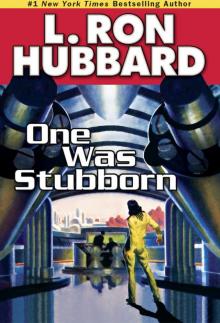 One Was Stubbron
One Was Stubbron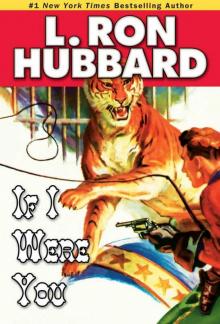 If I Were You (Stories from the Golden Age)
If I Were You (Stories from the Golden Age)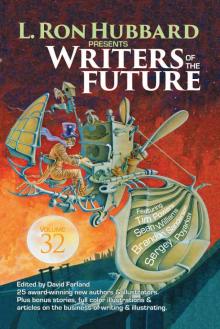 Writers of the Future 32 Science Fiction & Fantasy Anthology (L. Ron Hubbard Presents Writers of the Future)
Writers of the Future 32 Science Fiction & Fantasy Anthology (L. Ron Hubbard Presents Writers of the Future)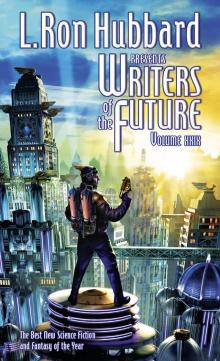 Writers of the Future, Volume 29
Writers of the Future, Volume 29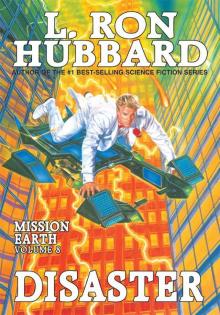 Mission Earth Volume 8: Disaster
Mission Earth Volume 8: Disaster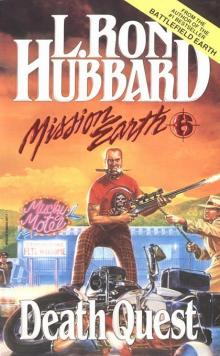 Mission Earth 6: Death Quest
Mission Earth 6: Death Quest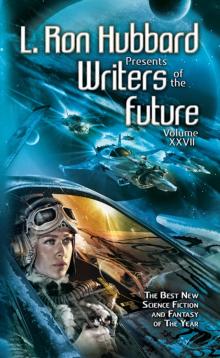 Writers of the Future, Volume 27
Writers of the Future, Volume 27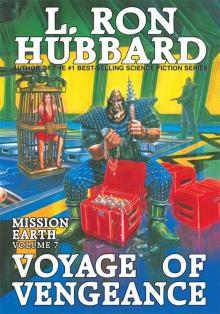 Mission Earth Volume 7: Voyage of Vengeance
Mission Earth Volume 7: Voyage of Vengeance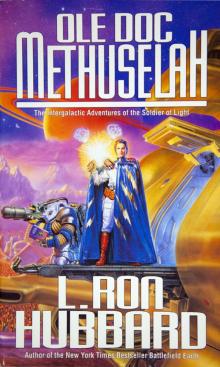 Ole Doc Methuselah
Ole Doc Methuselah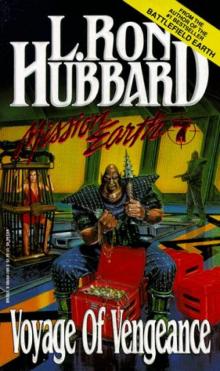 Mission Earth 07: Voyage of Vengeance
Mission Earth 07: Voyage of Vengeance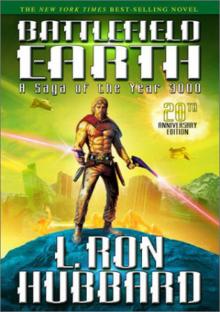 Battlefield Earth
Battlefield Earth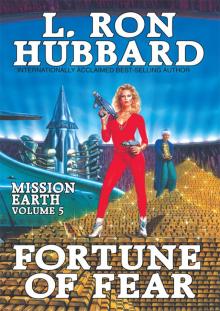 Fortune of Fear
Fortune of Fear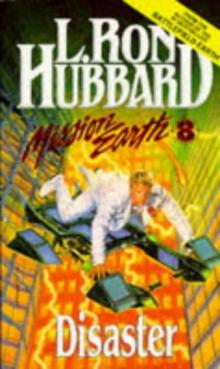 Mission Earth 8: Disaster
Mission Earth 8: Disaster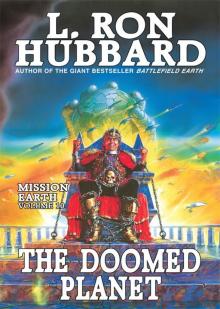 Mission Earth Volume 10: The Doomed Planet
Mission Earth Volume 10: The Doomed Planet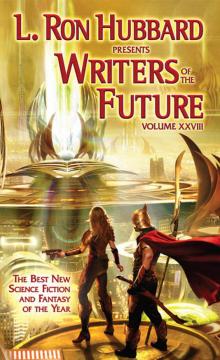 Writers of the Future, Volume 28
Writers of the Future, Volume 28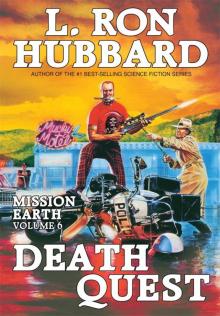 Mission Earth Volume 6: Death Quest
Mission Earth Volume 6: Death Quest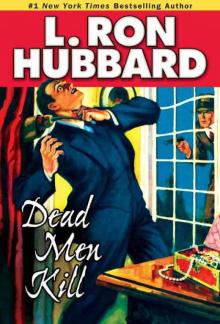 Dead Men Kill (Stories from the Golden Age)
Dead Men Kill (Stories from the Golden Age)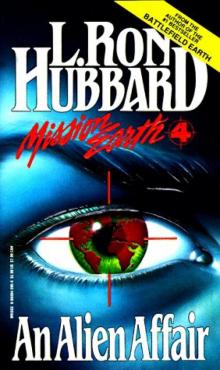 Mission Earth 4: An Alien Affair
Mission Earth 4: An Alien Affair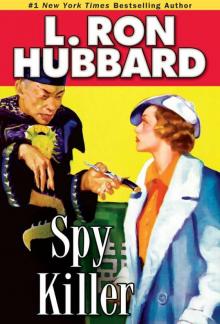 Spy Killer (Stories from the Golden Age)
Spy Killer (Stories from the Golden Age)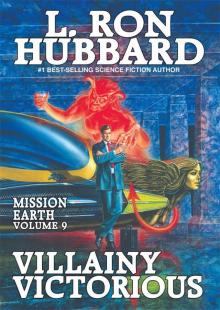 Mission Earth Volume 9: Villainy Victorious
Mission Earth Volume 9: Villainy Victorious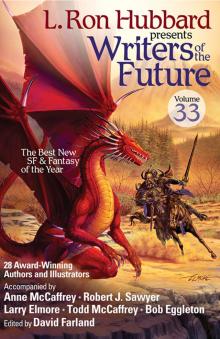 L. Ron Hubbard Presents Writers of the Future, Volume 33
L. Ron Hubbard Presents Writers of the Future, Volume 33